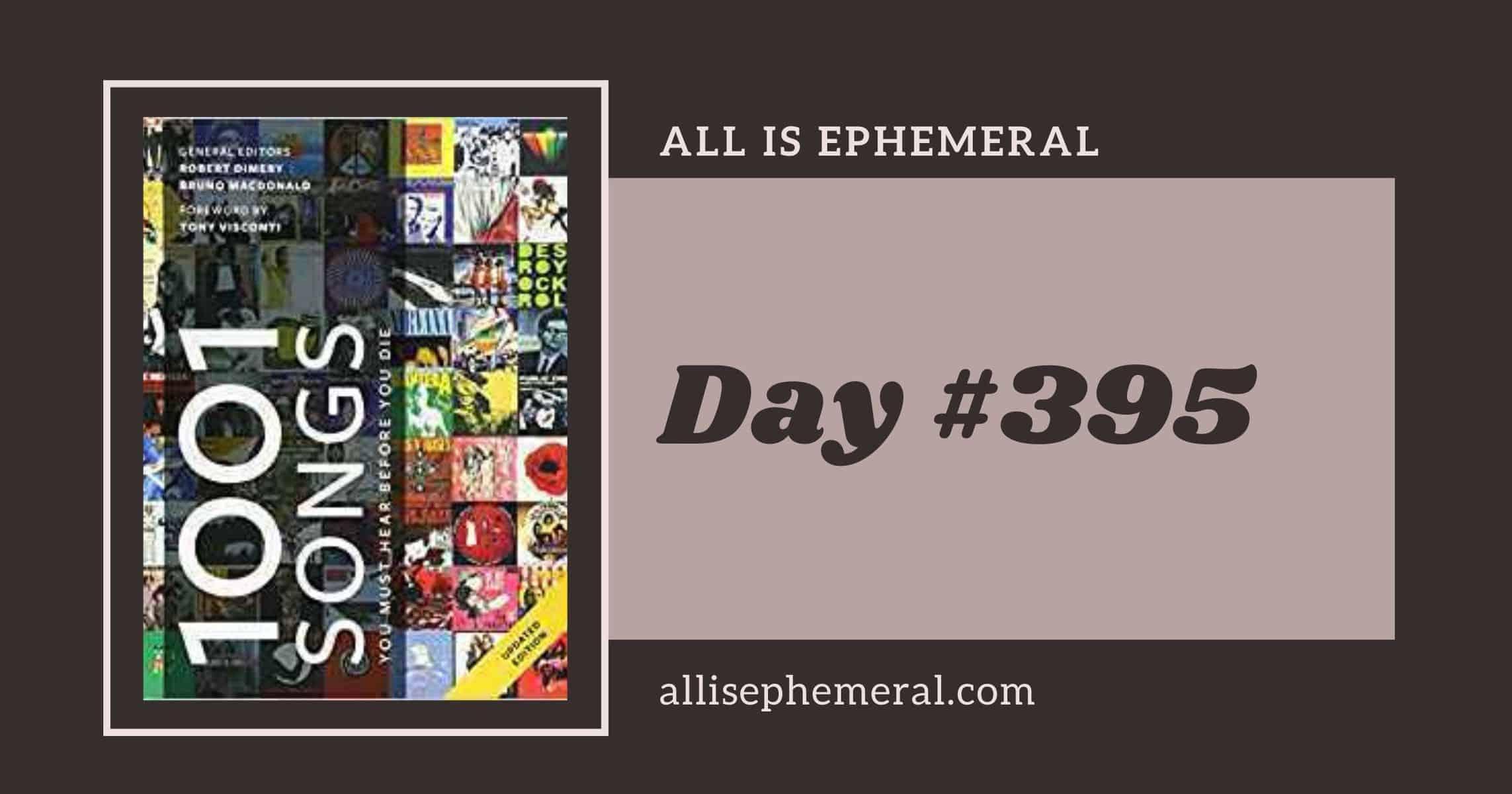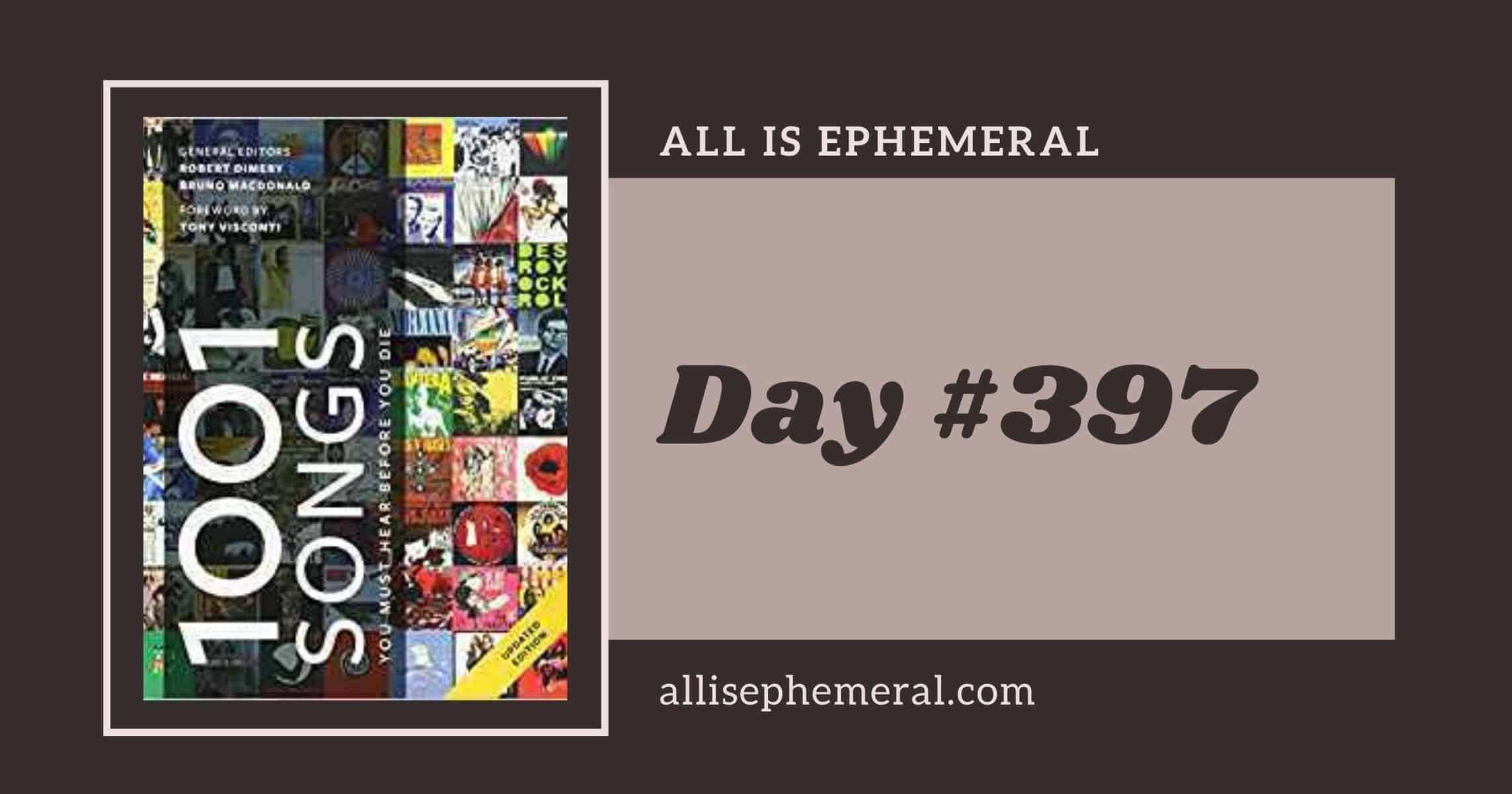
1001 Songs Challenge #396: Piss Factory (1974)
 On 11 February 2019 I set myself the challenging of reading 1001 Songs You Must Hear Before You Die by Robert Dimery (ed.) and following the book’s advice to the letter. I’ve previously read 1001 Films… and started 1001 Albums… but felt 1001 Songs… would be a sensible place to start for what I have in mind here.
On 11 February 2019 I set myself the challenging of reading 1001 Songs You Must Hear Before You Die by Robert Dimery (ed.) and following the book’s advice to the letter. I’ve previously read 1001 Films… and started 1001 Albums… but felt 1001 Songs… would be a sensible place to start for what I have in mind here.
My challenge is to read about one song per day and listen to it (YouTube and Spotify, I need you tonight!) before sharing my own thoughts. Some songs I will love, others I’ll hate, and I’m sure there will be those that leave me perplexed but listen to them I shall.
I’ll also try, and most likely fail, to pinpoint the best song from the 1001 on offer but I’m nothing if not foolhardy. Instead of one song, I’m predicting I’ll have about 100 favourites by the end and may have to resort to a Top 10 so far to maintain any semblance of sanity.
of one song, I’m predicting I’ll have about 100 favourites by the end and may have to resort to a Top 10 so far to maintain any semblance of sanity.
So long as I post everyday (including Christmas) then this challenge should come to an end on Wednesday 8 November 2021. Staying with the Barney Stinson theme I am hoping that the whole experience will prove to be…
Patti Smith Group – Piss Factory (1974)
We’re leaving Florida today and that homage to Alabama in favour of a road trip to Chicago where today’s artist is from. However, it was in New York that she came to prominence as a key figure in the punk rock movement taking place there. Patti Smith was a quite different musician though, blending rock with irresistible poetry, she carved herself an enduring legacy especially with the 1975 album, Horses. 1001 Songs has found Smith in 1974 with the release of a single, Hey Joe, however, they have flipped the record and gone with the B-side – Piss Factory.
Piss Factory began life as a poem and was based on Smith’s experiences of working in a factory that specialised in baby buggies. It was an experience that convinced Smith there was far more to life. In the song, the narrator describes the mundane existence of working in the factory, the monotony and routine, the heavy hours for a feeble wage at the end of the week. At first it seems there is resignation in this role but the narrator has resilience about them, being admonished for working too fast, she answers with retorts that there will always be more work to do so why not be quicker about it. She also gazes enviously out of the window at a group of nuns and recognises that even in their devout existence and duty to God, they have more freedom than she does. The narrator concludes that they will leave the factory, head to New York to become a star, which is indeed what Patti Smith did.
buggies. It was an experience that convinced Smith there was far more to life. In the song, the narrator describes the mundane existence of working in the factory, the monotony and routine, the heavy hours for a feeble wage at the end of the week. At first it seems there is resignation in this role but the narrator has resilience about them, being admonished for working too fast, she answers with retorts that there will always be more work to do so why not be quicker about it. She also gazes enviously out of the window at a group of nuns and recognises that even in their devout existence and duty to God, they have more freedom than she does. The narrator concludes that they will leave the factory, head to New York to become a star, which is indeed what Patti Smith did.
In Piss Factory, we have a seemingly simple combination with Smith’s vocals accompanied by a sumptuous piano melody but don’t let that fool you about the song’s merit. The piano is exquisite but the vocals are the key piece here. Smith’s ample lyrics paint a vivid picture of the unfulfilling factory life she endured. Her delivery is clear, her words stunning and at times you could imagine this mixture of poetry and rock to be a precursor of sorts to the likes of hip hop still to come. I often struggle with poetry, appreciating the art behind it, but not always finding the meaning. Here, it flows perfectly with the music and by the end I was cursing myself for my limited prior appreciation of Patti Smith. I love another track of hers, Dancing Barefoot, but am ignorant of her other work. That is something I intend to change.
Favourite songs so far:
The Animals – House of the Rising Sun (1964)
Simon & Garfunkel – The Sounds of Silence (1965)
The Doors – The End (1967)
The Beatles – A Day in the Life (1967)
The Kinks – Days (1968)
Derek & The Dominos – Layla (1970)
David Bowie – Life on Mars? (1971)
Rod Stewart – Maggie May (1971)
Stevie Wonder – Living for the City (1973)
Patti Smith Group – Piss Factory (1974)





